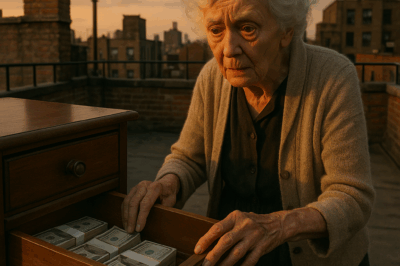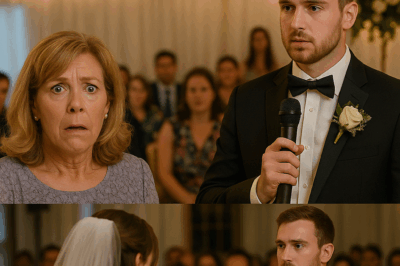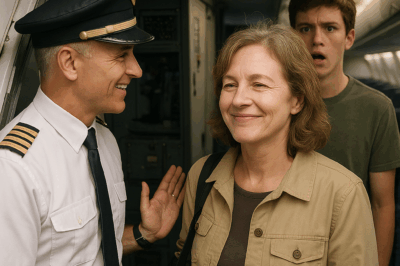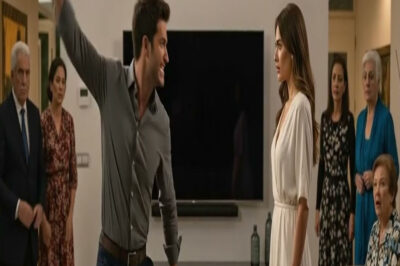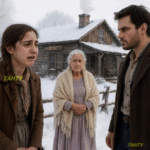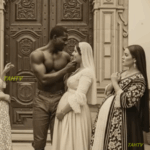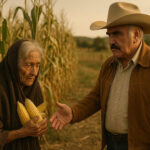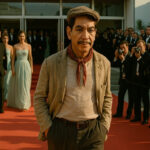It was a March morning in the late summer of 1983. The sky was clear, the air was fresh, and there was a certain peace in that small town in the interior of southern Brazil. Everything seemed calm. But house number 27 on the main street was in turmoil.
Inside, something was about to happen that would mark the history of that region and forever changed the life of a man named Otavio. Otavio was a 36-year-old man, blonde with serene eyes, accustomed to working in the fields. He worked as a small farmer. He woke early everyday, tended the crops, the animals, and the small shop he ran in the backyard with his wife, Helena, a sweet woman with a gentle smile, and possessed a rare strength. They had been married for 12 years.
They had tried to have children for almost a decade, and for many years, they believed they would never be parents. Helena had suffered two miscarriages and a severe medical diagnosis. “You will never be able to maintain a pregnancy for more than 3 months,” they said. But against all odds, the impossible happened. In mid 1982, Helena became pregnant.
They both cried for hours when the test came back positive. They cried with fear, with happiness, with anguish. They promised not to tell anyone for the first few months. And so it was. She withdrew, stopped working, and took care of herself like never before. Otavio did everything he could to protect her. In the fourth month of pregnancy, a surprise. It wasn’t one baby. It was two.
And then in the fifth month, another ultrasound revealed more. There were five. On the sixth, the most complete examination they did in Porto Allegre brought the definitive shock. There were nine new. No one understood how Helena’s uterus was managing to sustain that. The doctors called it a miracle. And her, she smiled. He said each of those lives was the reward for all the years of pain and silence.
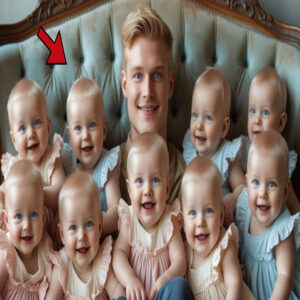
The birth was scheduled for the 34th week of pregnancy, a high-risk cesareian section. The hospital’s medical team was mobilized as if it were a war operation. The city hospital lacked resources, so Helena was transferred to the capital with the support of local volunteers. Otavia went along. The city stopped to watch.
And on March 12th, 1983 at 10:47 a.m. and the first girl was born, the second at 10:48, the third at 10:49. And so, one by one, in a matter of minutes, nine blonde, blue-eyed girls came into the world. Each of them weighed between 1 kilo and 1.5 kilo. Small, fragile, but lives. The entire operating room wept. Nurses, doctors, even the hospital director. Otavio couldn’t even speak.
He stood there staring at those nine incubators, silently repeating, “This is my family. They’re all my daughters.” But while he was discovering the miracle of fatherhood, fate was already preparing its blow. Towards the end of the surgery, Helena began losing a lot of blood. The doctors fought for almost 2 hours. They tried transfusions.
They tried everything, but at 1:12 p.m., Helena died. Otavio was only informed 3 hours later. He was holding his ninth daughter’s hand when he heard the phrase, “Otavio, we need to talk.” He didn’t need words. He felt it. His chest tightened. The world went silent. He fell to his knees in the hospital hallway. He didn’t cry.
He just stood there staring at the floor as if waiting for someone to wake him from this nightmare. The news spread like wildfire. The city came to a standstill. The press began arriving. Widowerower with nine newborn daughters. The story spread throughout the newspapers and Otavio, he stayed. He didn’t want to leave the hospital. He slept in the chairs in the neonatal ICU.
He alternated visiting hours, took notes, and cried in secret in the hallways. On the day of Helena’s funeral, he couldn’t make it. The girls were still under observation, and he couldn’t bear the thought of leaving. His older brother carried the coffin.
They say that the next day, Otavio wrote a letter to his wife and placed it inside the box of one of the incubators. The letter said, “Helena, you left me nine pieces of yourself. I don’t know how, but I’ll make it work, even if the whole world doubts it.” And he did. Little by little, the girls gained weight. One of them nearly died at 12 days old, but survived. The hospital staff, moved by the story, began to help.
One of the nurses, named Rosanna, volunteered to sleep at the hospital for weeks to help Otavio. Doctors created a special schedule just for their care. Donations poured in from all over the country. Bottles, clothes, diapers, money. All of Brazil learned about the story of the father of the nine girls. But Otavio didn’t want fame. He wanted structure. With the donations, he renovated the house. He bought cribs.
He organized a nursery with each daughter’s name on the wall. And at 2 months old, the girls went home. The entire town gathered in the street to welcome them. It looked like a parade. balloons, signs, children clapping. And there he was, Otavio, alone in the backseat of the truck with nine babies in his arms. No one ever forgot that scene. But the real challenge was yet to come.
After the day Otavio brought his daughters home, nothing was the same. He was no longer the man who tended the small plantation or the shop in the backyard. Now everyone called him the father of the nine girls. That’s how neighbors, acquaintances, newspapers, even the clerks at the registry office spoke of him.
Botavio no longer had his own identity. He was just that blonde man with sad eyes who left the house with nine strollers at once. In the early days, he could barely sleep. He spent the early mornings changing diapers, giving bottles, and rocking the girls one by one. He created an almost military-like system to avoid getting lost.
He numbered the milk bottles, organized the schedules on handwritten spreadsheets, and marked each girl’s sleep schedule with colored tape on the crib. The daughter who cried the most earned a star on the living room board. The one who slept best earned a heart. It was his way of connecting with each of them, even in the midst of confusion and absolute exhaustion.
Their daughters were named after names Otavio and Helena. Anna, Lara, Sophia, Clara, Elisa, Julia, Helena, after their mother, Louisa, and Bianca. Simple, sweet names like the wooden dolls he carved himself during his breaks from work to give them when they turned one. Each name was handwritten on the bedroom wall along with a photo of their mother in the center, framed with dried flowers that Helena loved to pick.
The city, once just a dot on the map, became a national landmark because of that family. Reporters came from far and wide to interview Otavio, but he always refused. He said he didn’t want fame or pity. He just needed peace. He wanted to raise his daughters with dignity away from the spotlight. Some people understood, others didn’t, but everyone respected him. Over time, Otavio realized he couldn’t do it all alone.
The routine was inhumane, so he accepted help from neighbors and acquaintances. He set up a community system in which each family on the street was responsible for helping out during a shift. Some brought food, others helped bathe them, others simply sat with him to talk, and so the time passed. The nine girls home became a symbol of love, cooperation, and faith. But not everything was a party.
When the girls turned one, Otavia was called by the social worker. They told him the state didn’t believe he was emotionally capable of raising nine children alone. They talked about foster care, separate adoptions, and better opportunities for each. Otavio nearly lost his footing. They are my daughters. I made a promise to their mother. No one will separate them. The legal battle lasted months.
Lawyers offered their services free of charge. A petition with over 5,000 signatures was submitted to the children’s court. The people refused to accept the separation and in the end Otavio won. The girls stayed with him. That moment marked a turning point in the family’s life. From that moment on, Otavio decided to never again depend on anyone’s kindness. He wanted to achieve stability with his own hands.
He sold the land behind the house and bought a small greenhouse. He began growing rare flowers. Helena loved flowers. So he began selling personalized arrangements with his daughter’s names on each bouquet. Anna’s roses, Sophia’s orchids, Julia’s tulips.
It was a tribute to his wife and a way to sustain the family with dignity. The flowers became a success. Within 2 years, Otavio already had regular clients in three neighboring towns. But he didn’t stop there. He bought an old pickup truck, adapted it as a mobile greenhouse, and began traveling on Sundays with the girls to fairs and squares, selling the bouquets, and discreetly telling their stories. Not to show off, but to inspire.
And inspire they did. As the girls grew, Otavio did everything he could to ensure they didn’t miss a single milestone. He was the one who combed their hair, sewed their dresses, taught them to read, write, assemble toys, baked cakes, and men socks. When they had fevers, he was the one who stayed awake at night with a damp cloth on their foreheads.
When they cried because of nightmares, he was the one who sat by their bedside, told them stories he’d made up on the spot, and stayed there until he saw their eyes closed peacefully. But it wasn’t always easy. There were moments of utter exhaustion. Moments when Otavio would cry in the bathroom, afraid he wasn’t doing enough, afraid of making mistakes, of not being able to cope, of failing. But he never let them see it.
To the girls, their father was a hero, and he carried that role with the strength of a thousand men. When they turned five, each received a necklace with their first initial and a small blue stone in the center. Otavio gave them the necklaces with a single phrase. You are unique, but you were born together. Never forget that.
The girls began to show their personalities early on. Anna was more serious, always protecting her sisters. Lara was extroverted, speaking for everyone. Sophia was the one who most resembled her mother, quiet, observant, loving. Clara was creative, drawing everything she saw. Elisa was the first to volunteer when someone needed help. Julia was stubborn and courageous.
Helena, the daughter named after her mother, had a look that made Otavio cry silently. Louisa was sensitive, crying even over crushed ants. And Bianca, Bianca was pure laughter. The schools wanted to separate them into different classes. But Otavio insisted they studied together. He wanted them to grow up together, knowing they were stronger together.
At first, the teachers were apprehensive, but they soon realized there was something special about their connection. It was as if they complimented each other and in a way they did. But there was one question they all avoided asking. Dad and mom. The first time they asked. They were 7 years old. It was Bianca who asked. They were in the garden picking flowers for a school activity.
Otavio stopped, sat on the ground, and took a deep breath. Then he told her. He told her everything. She told him with tears in her eyes, but without drama. She said their mother had been an extraordinary woman. that she had given everything for love, that it was because of her that they were there, and that every time he looked into one of their eyes, it was as if he saw Helena again. The girls cried, but it was a beautiful cry, the kind that washes away.
And that day, they all went to their mother’s portrait hanging in their room and left flowers. Unbeknownsted to Otavio, each of them wrote a little letter and placed it behind the frame. years later when they were older, these letters would be read together and would change everything. But that you’ll find out later.
Time has a strange way of passing when you live for love. For some, the years feel like a prison. For Otavio, the years with his nine daughters were a sacred passage. Each morning beside them was a silent blessing. Each silent night beside nine beds, breathing softly, was a reminder that he had made the right choice.
By the time the girls turned 10, the house had fully adapted to its new reality. The small, simple building had been transformed into a sort of family cabin. Shared bedrooms with bunk beds, color-coded closets, calendars with birthdays, and school years hanging on the living room wall. Otavio had learned to organize his life like few others.
But the light and playful childhood was beginning to fade away. Adolescence arrived like a storm. Each girl, now with opinions, more intense emotions, and unique needs, began to fight for her place in the world. And Otavio, who had always been a harbor, also became a beacon, steadfast yet simultaneously illuminating different paths.
Lara was the first to ask to cut her hair short, but hesitated, but understood. Anna wanted to sleep in a separate room just for a week to test it out. Julia became more withdrawn. Elisa began questioning her appearance. Bianca wanted to stop wearing dresses and asked for jeans. Sophia began drawing sadder pictures.
Clara began writing in diaries that she locked with a key. Helena read books about motherhood and pregnancy. Louisa cried without knowing why. And Otavio watched. He didn’t fight. He listened. He talked to each of them separately. He understood that they were changing and that he needed to change, too.
Love now required less action and more silence, less command and more presence. It was a new challenge, one of the most difficult. But he faced it. It was around this time that external judgments began. The girls were beautiful. Nine blonde teenagers with intense blue eyes, identical features, and a natural charisma. They drew attention wherever they went. The town became too small.
There were snide comments, sidelong glances, gossip in bakeries and stores. How does he manage alone? Has any of them gotten pregnant yet? Do they have no mother because their father didn’t know how to take care of them? The words hurt, but more than that, it hurt the way they looked at their father as if they wanted to defend him but didn’t know how. One day, Anna came home from school crying.
They had said that she didn’t have a mother because her mother chose to die rather than raise nine girls. Otavio took a deep breath, hugged her, and said, “Daughter, sometimes people don’t know what they’re saying.” Your mother gave her life for you, literally, and that is the greatest love there is. That same day, he called them all into the living room.
For the first time, he showed them a small wooden box he’d kept since their birth. Inside were a ribbon from their mother, the note Helena wrote shortly before the birth, one of her earrings, a dried flower, and the letter he’d left in the incubator years ago. When they read their father’s letter written while still in the hospital, they all cried.
Even Anna, who rarely got emotional. It was at that moment that they truly understood their significance in that man’s life. If one day I’m no longer here, I hope you remember how hard I tried. If I failed, it was trying to get it right. If I cried, it was in silence. If I loved, it was without measure.
You are the best I have left. Adolescence continued with its ups and downs. But there was one curious detail. Neither of the girls truly distanced themselves from their father. Even in moments of rebellion, protest, yelling, and slamming doors, they always returned. They always apologized. They always sat down to talk.
The bond between them was stronger than any difficult phase. But the house was starting to feel too small. Otavio noticed this, and he felt a pang. Soon they would be leaving. When the girls were 16, Otavio made a gesture that surprised everyone. He sold the greenhouse. Yes, the same one that had supported the house for years.
With the money, he bought an old school bus and completely renovated the inside, transforming it into a home on wheels. He wanted to give his daughters one last collective memory before each of them went their separate ways. For 3 months they traveled the country from town to town, sleeping in campsites at gas stations on deserted beaches in strangers backyards. They saw the sea, the snow, the backlands, the mountains, the interior of Minas Jerice, the vastness of the Churado. They laughed, fought, cooked together.
They made videos, took photos, wrote letters to each other. And on the last night of the trip, sitting around a makeshift campfire in the middle of an open field, Otavio said, “I know I wasn’t perfect. I know I made a lot of mistakes, but if I could go back in time, I would do it all over again. Exactly the same. You are my life.
And if one day I’m not here, remember that everything I built was with love.” They didn’t answer. They just cried and lay down with their heads in their father’s lap, just like they had when they were children. They lay there in silence, listening to the night crickets, the wind blowing and their hearts pounding with gratitude.
When they returned home, something had changed. The farewell was near. At 18, each began to follow their own path. Anna went to S. Paulo to study medicine. Lara chose journalism in Florianopoulos. Julia enlisted in the army. Elisa went on an exchange program. Sophia became a visual artist. Clara started a video channel with moving stories.
Helena wanted to study psychology to understand what she’d been feeling since childhood. Louisa became a missionary and Bianca stayed. She wanted to stay with her father. Otavio watched the house slowly empty. Cribs turned into beds, then empty closets, then locked rooms. The house fell silent, and he remained, but he was at peace. He knew he had accomplished his mission.
that despite all the fears, pain, and sacrifices, he had succeeded. Raising nine girls with love, with dignity, with truth, but fate, as always, still had one last big surprise in store. And this surprise is closer than you think. Time waited for no one in that house. When the eldest daughter, Lara, announced that she had been accepted into the federal university to study medicine, the room was filled with joy and silence at the same time. It was a victory. Of course it was.
She had fought, studied by candle light when the power went out, shared a notebook with two other sisters. But when she hugged her father that night, and said, “I’m going, Dad, but I promised to come back every weekend.” Something inside him broke. He looked at the stairs and saw for the first time the wood worn from so many climbs and descents with the girls in his arms. “Go, my daughter. Yes, you will.
But never forget that your place in the world began here on these stairs in this kitchen on this floor where your mother died to give birth to you. He spoke with tears in his eyes trying not to break down. Lara’s departure opened the floodgates one by one. The others began to chart their paths. Mariana wanted to study abroad. Rebecca wanted to go on an exchange program. Clara dreamed of opening a flower shop.
Deborah wanted to get married. But it was Bianca’s decision that changed everything. She appeared in the kitchen one night with an envelope in her hand. Her sisters whispered in the hallway. Their father sitting at the table with his coffee mug was already suspicious. When she handed him the envelope, he didn’t want to open it right away.
You open it, daughter. And she did. It was a DNA test. Bianca had taken it on her own with a doubt that had been silently gnawing at her for years. Why didn’t she look like any of her other sisters? She was blonde. Yes. Blue eyes, yes. But something about her was different. Ever since she was little, she’d felt out of place. Her father never showed any difference, but Bianca had a hunch.
And now it was there, black and white. She wasn’t her biological daughter. The confession came as a bombshell. Her sisters were shocked. Her father was paralyzed. Why didn’t you ever tell me? Because I never wanted you to feel less than.
And whose daughter am I then? He took a deep breath and told the truth he’d hidden for over 30 years. On the night his wife died in childbirth. One of the nine girls had been still born. The hospital, unsure how to break the tragedy to an already devastated man, switched the baby with an abandoned newborn who had been anonymously dropped off just hours earlier. Am I that baby? You are my daughter, Bianca.
Because I held you in my arms with the same love. Because I rocked you in the early mornings with the same music I rocked the others. And because even though I didn’t give birth to you, I chose you every day. That’s what being a father is. She cried. They all cried. The silence lasted a long time that night. But in the end, one by one, the sisters approached, hugged Bianca, and repeated in chorus, “You are our sister.
Always have been.” That crisis brought the family closer together than any Christmas or birthday. The exposed wound healed with the truth, but life never stopped testing that father. Months later, he had a heart attack. Alone at home, his daughters were already scattered, one in another state, the other out of the country.
The one who helped him was his neighbor, Mrs. Terzena, who noticed the lights were on that morning. At the hospital, he was revived. He survived, but he left feeling weaker. His daughters began taking turns caring for him, but he didn’t want to be a burden. He wanted to see them fly. He insisted they mind their own business.
One day, he gathered them all in the living room and made a request. Let me live with one of you. I don’t want to be alone anymore, but I also don’t want to get in anyone’s way. Do what you think is best between you. They argued. They argued a lot. But in the end, they decided something no one expected.
They would sell their childhood home and buy a new house where they could all live together with him for a while. It would be like a return to their roots only with each one bringing their own story. The decision was emotional. Together again, even if for a limited time, each with their own background, profession, and dreams, but all united by their love for the father who gave up everything to raise them.
It was in this new home that the greatest upheaval in the family’s history occurred. One day, while rumaging through a box of their father’s old things, they found a letter they’d never sent. It was addressed to a woman named Beatatrice. The handwriting was his. The date, 1982. Who is that woman, father? He fell silent. He closed his eyes. He swallowed hard. And then he revealed something no one expected.
Before meeting the girl’s mother, he had fallen in love with a young woman named Beatatrice. She became pregnant but disappeared. He never heard from her again. The letter was a desperate attempt to find her, but he never had the courage to send it. I might have a son out there that I’ve never met. The impact was enormous. The girls, now women, looked at each other in shock.
Could they really be nine? Or could it be possible that there was someone else? And that’s when Mariana made an unexpected decision. She would look for Beatatrice. She would go to the ends of the earth if necessary. And this search would change everything the family thought they knew about themselves. Silence fell over the house as Sophia stood up with an envelope in her hands.
It was an old letter yellowed with age, written in a delicate, firm hand. The other sisters froze. Father frowned in confusion, not understanding what it meant. Sophia held the paper as if she were about to unleash lightning, but her voice was calm, though trembling.
“I discovered this letter by chance almost 2 years ago,” she began, looking into her father’s eyes. It was inside a box of mom’s memories hidden in the back of the closet. I read it, reread it, cried, and put it back. But now, now I can’t hide it from you anymore. She handed the letter to her father. His hands were shaking.
The silence was so thick it seemed no one else was breathing in the room. They lion and as he read his expression changed. First confusion, then disbelief, finally tears. His wife’s words, written weeks before the birth, were a farewell. She predicted she wouldn’t leave the hospital alive. She said she felt it, that she dreamed about it almost every night. But what left everyone devastated was the final paragraph.
If anything happens to me, know that it was my choice to go through with the pregnancy. I knew the risks. The doctors warned me. I chose our daughters. I chose each of them. Even without knowing them, I chose to give them a chance to live, even if it cost me my own.
The father reading that broke down, he fell into the chair, clutching the letter to his chest. The nine daughters approached him slowly as if they were stepping into his soul. One by one, they knelt around him. It didn’t matter if they were 30, 35, or 40. In that moment, they were just daughters, small, fragile, faced with pain and truth. I never knew that, he whispered. I was never never told.
I thought that she had been taken by medical error, but she knew and he chose us. Completed Anna, the second daughter, now a doctor, crying. She was a heroin, said Isidora, the seventh. Sophia wiped the tears from her face. I kept this letter because I thought it would hurt, but I realized that hiding the truth is what hurts us the most.
That moment felt as if time had stopped, as if the family’s 41-year history had come together in a single instant. They understood there and then once and for all the reason for so much love, so much sacrifice. Because it wasn’t just their father who had made a choice. Their mother had also chosen. He hadn’t left by accident. He had given his existence for a purpose.
And that day, for the first time, they spoke their mother’s name out loud together, as if it were a prayer. Helena, the father, closed his eyes as he listened. And for the first time in decades, he smiled through his tears. Thank you, Helena, for leaving me with the most difficult and most beautiful mission in the world. Sophia got up and opened a box she had brought from her room. Inside were nine small dresses.
The dresses that the mother had sewn during her pregnancy, one for each daughter, handsewn with love. I found this too along with the letter. She knew she wouldn’t see us using it, but she still sewed it together one by one. The sisters touched the dresses as if they were touching their mother’s heart. That night, they didn’t sleep.
They sat around their father, spreading out the photos, the memories, the old clippings. They sang songs their mother had listened to. They told childhood stories. They laughed. They cried. And they felt that for the first time they were complete. Not because the pain was gone, but because now it made sense.
The next day, they made a decision, a promise, actually. And from here, the nine sisters most beautiful plan begins. The news of the nine pregnancies spread like wildfire through the city. It was as if fate had been guarding that moment for decades. everywhere. Questions and comments could be heard.
What do you mean all nine at the same time? Is it true they’re all pregnant? An army of blondies is about to be born. The sisters, in turn, were united as never before. The experience of collective pregnancy, the feeling of bringing children into the world alongside the women with whom they shared everything, toys, clothes, tears, secrets, and dreams, brought a new, almost sacred complicity. Mr. Antonio, now nearly 70, watched everything with shining eyes.
Silently, he observed the large belly of one, the nausea of another, the sparkle in their eyes. It was as if each one carried not just a child, but a response to life, a response to the suffering, to his mother’s absence, to the silence he had endured alone for so many years. “They’re fine.
They made it this far, he said to himself as he watered the plants in the backyard, looking at the clothes hanging out, listening to the laughter coming from the kitchen. And that’s when the most symbolic moment came. The nine daughters decided to organize a special Sunday lunch, just like in the old days. They all arrived early at their father’s house.
The house filled with laughter, aromomas, and life. Maria’s lasagna, Isabelle’s pie, Julia’s sweets. Everything was there. Everything was as before and around the table with the clatter of cutlery, chairs being pulled out and voices overlapping. Silence fell. Anna, the second oldest, stood up with a glass of grape juice in her hand. She was visibly moved.
Her sisters already knew what she would do, but so Antonio didn’t. Dad, she began, her voice trembling. We thought long and hard before telling you this, and today here, just as we’ve always been, we decided we needed to tell you. Mr. Antonio put down his fork, attentive. As teenagers, we were embarrassed to thank you.
We thought it was normal for a father to become a mother, cook, washerwoman, caregiver, and protector all at the same time. But now we know it was a miracle. She took a deep breath. That’s why all our children without exception will be named after mom. All of them. As a way of thanking her and you. The old man didn’t say a word. He just wept. The tears fell.
heavily without asking permission as his nine daughters approached to embrace him together. An embrace of so many memories, so many silences healed, so much pain now reconverted into love. The following week, the births began, one after another, some in different hospitals, others in the same one. A rotation of aunts, godmothers, and sisters caring for one another.
They were long nights of anticipation, fear, and euphoria. But in the end, the grandchildren were born. Nine grandchildren, six girls, three boys, all blonde, like the eyes that passed away with their mother in 1983. Some with blue eyes, others with lighter honey eyes, all healthy, all with the name Helena as part of their registry.
A tribute to the woman who gave birth to nine lives and left without knowing any of them. Su Antonio’s house was noisy again. bottles, scattered toys, cries in the early morning, the smell of baby powder and diapers. But he didn’t complain. Quite the opposite. Every day, he made a point of sitting in the hammock and cradling each grandchild in his arms, singing the same songs he once sang to his daughters. It seemed like the perfect ending.
But as always, life likes to keep one last surprise in store. And this no one, not even Antonio, could have imagined. After the birth of his nine grandchildren, Sir Antonio’s home became the family’s center of joy and hope. The children’s laughter echoed through the hallways, breaking the silence that had dominated for so many years. It was a celebration of life, of love that never faded.
But in the midst of this happiness, something still held a secret. One afternoon, while cleaning out the attic, Anna found an old, locked, and dusty box. Curious, she called her sisters to help open it. Inside, among photos and letters, was a sealed envelope with her name written in a shaky hand. She hesitated but opened it. It was a letter from his mother, Helena, addressed to so Antonio.
In the pages yellowed with age, Helena told a story never revealed. Before discovering she was pregnant with nine girls, she had lost a baby, a boy, and an early miscarriage. This loss affected her deeply. But what shocked the family was what came next. Helena revealed that at the same time she had to make an impossible decision to donate part of her organs to save the life of a close woman who was in a coma at risk of death.
She didn’t say who this woman was, only that she was someone very special and that she hoped that one day the truth would come out. The father moved reread the letter. Feeling the weight of a woman who always put love above all else, even herself, the family decided to seek answers. Who was this woman? What was her story? And it was in a small town in the countryside that they discovered the connection.
The woman who received the transplant was the father’s distant aunt who had been missing for years. This discovery brought the family even closer together, showing that Helena’s love not only saved their lives, but also the lives of others. Her legacy was greater than they could have imagined.
As he held his grandchildren in his arms, so Antonio smiled, feeling that Helena’s mission and his was complete.
News
Mi Hijo Me Mandó A Vivir A La Azotea… No Imaginó Lo Que Encontré En El Último Cajón De Mi Esposo
Mi nombre es Rosario Gutiérrez, tengo 72 años y toda mi vida la dediqué a formar una familia Nachi en…
Gasté US$ 19.000 En La Boda De Mi Hijo — Lo Que Hizo Después Te Va a Impactar…
Gasté $19,000 en la boda de mi hijo. Pagué cada centavo de esa fiesta y en plena recepción él tomó…
Mi Hijo Me Prohibió Ir Al Viaje Familiar. Me Reí Cuando El Piloto Dijo: “Bienvenida a Bordo, Señora”
Esta viaje es solo para la familia”, me dijo Orlando con esa frialdad que me helaba la sangre. Yo estaba…
¡No deberías haber venido, te invitamos por lástima!” — me dijo mi nuera en su boda con mi hijo…
No deberías haber venido. Te invitamos por lástima”, me dijo mi nuera en su boda con mi hijo. Yo solo…
Esposo Me Acusa De Infiel Con Cinturón. 😠 Proyecté En Tv El Acto Íntimo De Su Suegra Y Cuñado. 📺🤫.
La noche más sagrada del año, la nochebuena. Mientras toda la familia se reunía alrededor de la mesa festiva, el…
Me DESPRECIARON en la RECEPCIÓN pero en 4 MINUTOS los hice TEMBLAR a todos | Historias Con Valores
Me dejaron esperando afuera sin saber que en 4 minutos los despediría a todos. Así comienza esta historia que te…
End of content
No more pages to load

